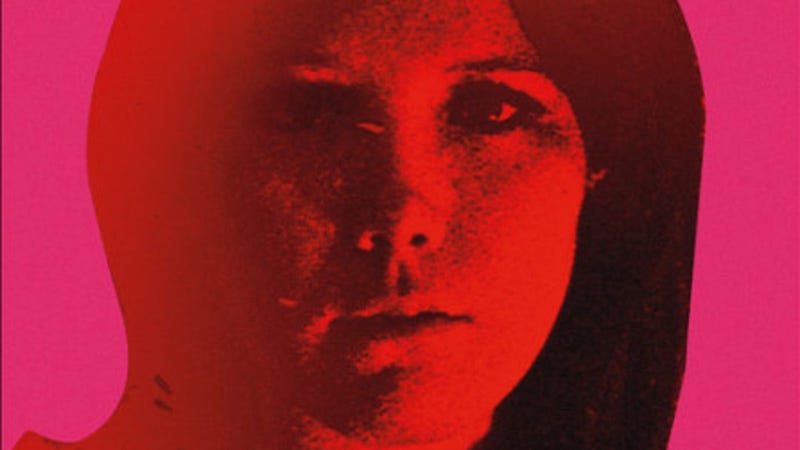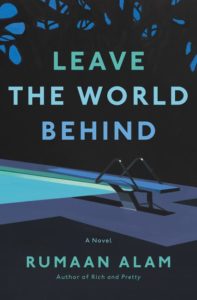
This week’s quintet of quality reviews includes Parul Sehgal on Lauren Oyler’s Fake Accounts, Durga Chew-Bose on Joan Didion’s Let Me Tell You What I Mean, Joyce Carol Oates on Becky Cooper’s We Keep the Dead Close, Hope Wakube on Charles M. Blow’s The Devil You Know, and Ruth Franklin on Rumaan Alam’s Leave the World Behind.
“…it is most thoroughly and exuberantly about the hunched, clammy, lightly paranoid, entirely demented feeling of being ‘very online’—the relentlessness of performance required, the abdication of all inwardness, subtlety and good sense … The novel has Points it would like to make—about self-mythologizing on the internet and in life, the overlap of the virtual and the actual; they are obvious and easily mapped. The riffs are its strongest aspects … You can get away with this sort of thing in a review, if you want to—creating dramas in which you, the critic, get to burst in waving a little sword, setting the world right. But can this safe, self-certain, self-congratulatory voice sustain a novel? Fake Accounts is, essentially, many of these interactions strung together. Oyler’s characters are unapologetic foils, useful idiots babbling on about ‘wellness’ and turmeric who allow our brilliant, irascible narrator to rant eloquently at familiar targets, like patronizing self-professed ‘male feminists,’ bourgeois white women who insist they are oppressed … The book isn’t written in little bursts or fragments (a form the narrator deplores, and parodies to good effect), but the tone is identical, that callow, quippy cleverness, the disdain… ‘Yes, but,’ I say, for all its forceful and stylish prose, for Oyler’s signature denunciation of moral equivocation and imprecision in thought and language. ‘Yes, but’ because I felt sharpened by it, grateful for its provocations … She settles on ‘difficult but worth it.’ I might describe this novel similarly—not difficult but maddening at times, too cautious, regrettably intent on replicating the very voice it critiques. But worth it, yes, especially if you’re up for a fight, to liven up whatever inwardness remains to you.”
–Parul Sehgal on Lauren Oyler’s Fake Accounts (The New York Times)
“In five decades’ worth of essays, reportage and criticism, Didion has documented the charade implicit in how things are, in a first-person, observational style that is not sacrosanct but common-sensical. Seeing as a way of extrapolating hypocrisy, disingenuousness and doubt, she’ll notice the hydrangeas are plastic and mention it once, in passing, sorting the scene. Her gaze, like a sentry on the page, permanently trained on what is being disguised … The 12 previously published essays collected (mostly) for the first time in Let Me Tell You What I Mean were written between the late 1960s and the year 2000. They are gathered coolly, unevenly, with an easygoing generalness, like a Didion digest. Or, since nearly every piece in the collection contains some mention of flowers, like a Didion bouquet. After all, she is her own kind of arranger—of words, of story—whose intuition for narrative arc is matched by her intuition for syntax … The essays in Let Me Tell You What I Mean are at once funny and touching, roving and no-nonsense. They are about humiliation and about notions of rightness … Didion’s pen is like a periscope onto the creative mind—and, as this collection demonstrates, it always has been. These essays offer a direct line to what’s in the offing.”
–Durga Chew-Bose on Joan Didion’s Let Me Tell You What I Mean (The New York Times Book Review)
“Mystery, like unrequited love, is best experienced in anticipation. Before myriad possibilities are collapsed to a single blunt conclusion, before the riches of the imagination are reduced to the merely factual and a cast of captivating suspects is reduced to a single guilty perpetrator, the romance of mystery lies in its very irresolution … a brilliantly idiosyncratic variant of generic true crime, rather more a memoir than a conventional work of reportage, so structured that the revelation of the murderer is not the conclusion or even the most important feature of the book. Instead, the journey to nonrevelation—’the absence of mystery, of narrative echo, of symmetry or rhyme or sense’—becomes the memoirist’s subject … Like a skilled mystery novelist, Cooper presents her cast of suspects in so beguiling a way that as each is examined, it seems likely to the reader that he is the killer.”
–Joyce Carol Oates on Becky Cooper’s We Keep the Dead Close (The New York Review of Books)
“In cogent arguments bound together by his customary incandescent prose, Blow explores how the white backlash towards the Great Migration that never really ended has created a situation where racism in these Northern ‘destination cities’ of the Great Migration makes life untenable for Black Americans. Through research undertaken by Project Implicit, Blow found there is no difference between anti-Black bias in the North and the South. There are only the ideas that people will admit to out loud. In other words, writes Blow, ‘white people outside the South say the right words but many possess the same bigotry’ … throughout the book, Blow grounds his ideas in this central question: ‘What could and should Black people do to acquire and maintain the economic and political power—for the many, not just for the few—that the Great Migration failed to secure?’ … for Blow, [Harry] Belafonte’s call still comes through loud and clear. Imagining free Black futures requires radical thought. ‘In a society and system in which white supremacy is ubiquitous and inveterate, Black people need fierce advocates to help restore the balance in the first instance,’ writes Blow. Throughout his legendary career in journalism, Charles Blow has long been that voice. The question is now: Will you join him?”
–Hope Wakube on Charles M. Blow’s The Devil You Know (NPR)

“For Alam, who writes about his characters as if he were a medical student dissecting a cadaver, psychological depth is not the point. He has an interior barometer exquisitely calibrated to signifiers of social class: …His interest lies in taxonomies of race and class, not in generating the reader’s empathy or evoking an emotional response. Lacking the capacity for deep reflection, his characters drift along in their bubbles, so perfectly self-absorbed that the other people in their lives are all but invisible, except to the extent that they function as projections … Alam is at his best when lavishing attention on the texture and details of a certain style of privileged contemporary urban life, rendering it with a Chuck Close–style hyperrealism that magnifies its flaws … Despite its appearance, Leave the World Behind isn’t a book about a global disaster; it’s a book about racism—or, more precisely, white entitlement…As the novelist, Alam controls the narrative; it’s his prerogative to spotlight white ignorance and entitlement. At the same time, the stereotype-heavy characters combine with the lack of plot development to give this book the feeling of a set piece rather than a fully realized work of fiction … Alam is a gifted writer; I devoured Leave the World Behind in a long gulp on an insomniac night. The verisimilitude with which he depicts a certain social world is impressive. But I was left wishing he had marshaled his talents in the service of something more ambitious. This slender book feels like half a novel, one that might work better if it dissected human motivation as assiduously as it does shopping habits, or if it tried to pull its seemingly random nuggets of terror into a cohesive shape. When a writer seems to be more interested in describing shallowness than in diving into the mess of human emotion, the result can be fiction that circles around urgent social questions without really examining them.”
–Ruth Franklin on Rumaan Alam’s Leave the World Behind (The New York Review of Books)

